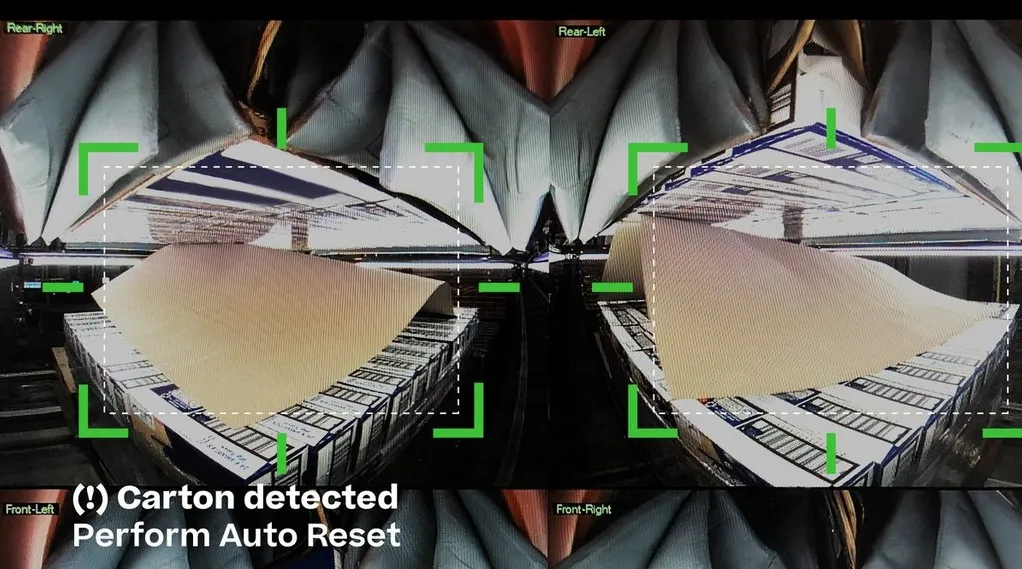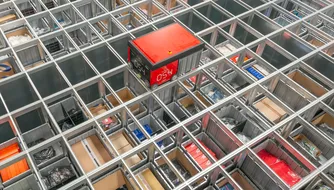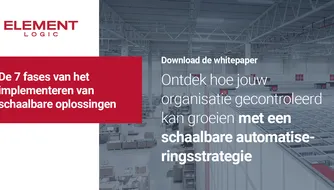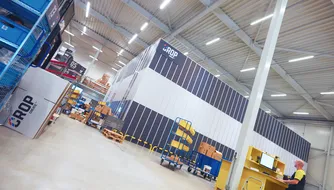Depalletizing takes a giant leap with AI
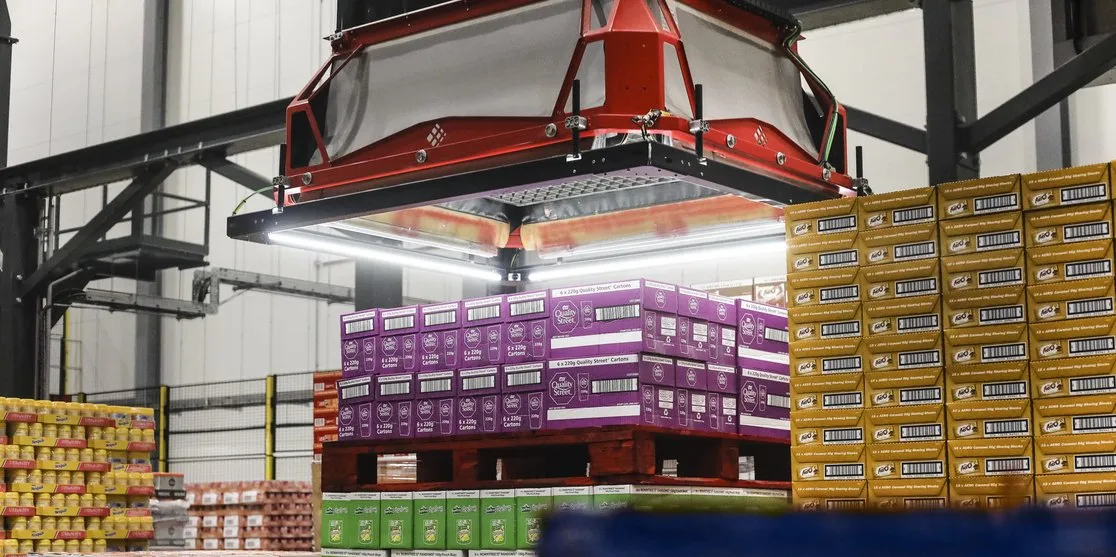
An artificial intelligence add-on to our Layer Picker has made it possible to automate steps that previously required time-consuming human intervention. Solving the practical issues leads to a magnificent number of additional benefits.
Tasks that are easy and simple for humans to perform are often the most difficult to automate. For instance, it is easy for the human eye to detect a slip sheet of carton or plastic hanging down from a layer on a pallet, but very difficult for a machine. This problem is now solved with artificial intelligence (AI).
When our Layer Picker gets hold of a layer with a slip sheet hanging down, it automatically stops as it can’t identify it as goods and thus identifies it as a risk of dropping a layer. On average, an operator of the Körber Layer Picker spends two minutes reacting to the alarm and resetting the machine each time it occurs.
With an add-on called Operator Eye based on AI, the equipment can reset itself in just seconds.
Demystifying AI
Since the launch of Chat-GPT, AI has gotten a lot of hype and attention. Will it take my job, will it develop a conscience, will it take over the world? I assume some of these fearful questions are based on difficulties of understanding what is going on in the algorithms behind the scenes.
With the Operator Eye, we are bringing AI to the warehouse and there is absolutely nothing mysterious about it.
Operator Eye is based on vision technology with four cameras attached to the Layer Picker. Vision technology is not new, but without AI we would need to have reference pictures for every single way the slip sheet could be picked up by the Layer Picker – including every angle and every lighting situation. If we couldn’t provide the model with a close match, we couldn’t define an action.
Today, due to the easy accessibility of computer power and the amount of available data this has changed. Combined with the rapid increasing numbers of AI classification models, developed for everything from self-driving cars to ChatGPT that simplifies building and deploying machine learning models, we can train the algorithm. It can now recognize patterns and calculate a very accurate probability that the Layer Picker has picked up a layer successfully with hanging plastic or carton and that it is not a box of ketchup bottles about to fall down.
The AI behind the Operator Eye is not magic. It is a lot of pictures of scenarios where your machine has stopped. Learning this creates a recognizable pattern for an algorithm based on our deep knowledge about depalletizing.
Learning from the operator
To really call the Operator Eye an AI solution, it of course has to improve over time as well. And it does.
When we deploy Operator Eye at a new site, it learns from the operators and continuously becomes more and more efficient. The cameras detect the reason for a stop, and if the operator hits the reset button, the system will automatically learn to reset next time a similar incident causes a stop.
As these learnings accumulate over time, you will experience fewer and fewer situations, where the operator needs to interact with the equipment.
A world of unforeseen benefits
When we set out to develop the Operator Eye, it was with the vision of creating a system that could automatically reset plastic and detect slip sheets to cut down on unnecessary downtime from unwanted stops. We ticked that box – our pilot customers increased the operational availability of their Layer Picker by 8-12% – for some of them this adds up to more than 240 additional production hours a year.
We also learned a lot along the way and ticked some other boxes as well – some of which might prove to be worth more to our customers over time than solving the task we initially set out to do.
Who is paying for damaged goods?
First of all, it provides data on the root cause of every failed pick. As of today, this data is not available and customers react on feelings and pictures taken with their mobile phones. Operator Eye provides all the data you need to analyze and explain quality issues to your suppliers like damaged goods, wrong packing, or dual slip sheets. Simply put, it will be easier to settle the bill for damaged goods and lost time.
Get your master data right
Regarding your own efficiency, the Operator Eye also helps you get your master data right. The Operator Eye identifies the goods with wrong master data. We are surprised by how often the master data is wrong in both our existing customer base as well as with new customers.
Some goods may have seven or eight different picking programs. The root cause is wrong master data, and wrong master data often causes bad operator behavior. Choosing the right picking program becomes a guessing game that the operator tries to fix on his shift. This may lead to dropped or damaged goods due to the use of the wrong picking program. The Operator Eye makes this issue visual and provides the data to the decision makers to correct master data and select the correct program based on imperial data and not feelings.
Our next development project is to automatically determine the picking program best fitted for the product without the intervention of the operator making the production more reliable and efficient.
With Operator Eye and AI, our equipment learns how to compensate for real production challenges. With the benefits of AI, we are taking huge steps towards the “dark factory”, and the benefits of AI are already tangible today.
Our team is always ready to help calculate the expected value our customers will gain from an AI solution with Körber Supply Chain.
